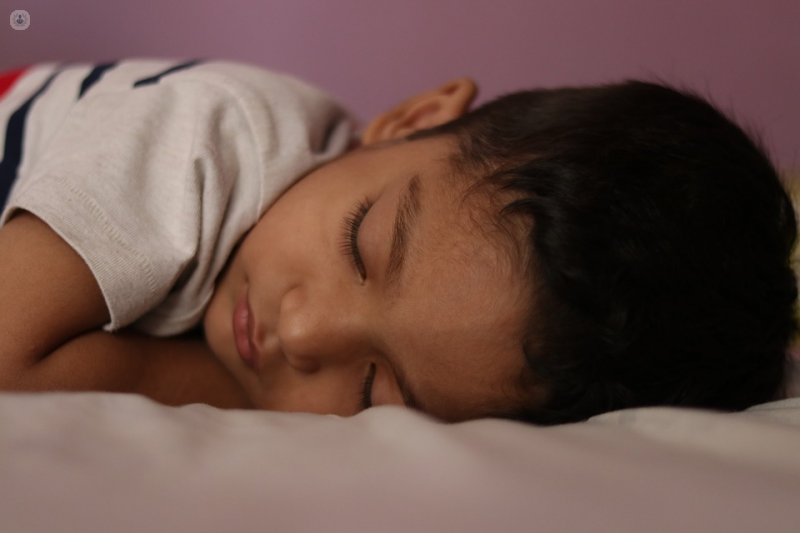How to stop bedwetting
Escrito por:How can I stop my child wetting the bed? In the second part of our interview with expert paediatric urologist Mr Andrew Robb, he provides some solutions to bedwetting in children.

So, what can we do to help a young person who's wetting the bed? Well, there are some things that you can start to do to help a young person before you ever get to see a doctor.
These include making sure that the young person drinks plenty, which sounds really daft, given the fact that we're trying to get them to stop wetting the bed. However, it's important that the kidneys are working and that they're flushing their waterworks through to try and prevent them from developing a waterworks infection. You should be encouraging them to drink throughout the day, but don't let them drink all the way up to bedtime; try and get them to stop drinking about an hour before they go to bed.
What they drink can also have an impact on what happens overnight, so you should try and avoid things that irritate the bladder like blackcurrant cordial, Vimto, Ribena or anything like that, because there's a chemical in blackcurrant which will irritate the bladder. You should try and stop young people having tea or coffee before they go to bed as well. The caffeine in tea and coffee acts as a diuretic and a diuretic is a substance which causes the kidneys to produce more urine, which means if they have that just before they go to bed they'll produce more urine overnight and are more likely to wet the bed.
What is a bedwetting alarm?
One of the very simple things that's been shown to help young people who wet the bed is using a bedwetting alarm or enuresis alarm. This is an alarm that picks up whenever a young person first starts to pass urine at night and whenever they're wetting the bed. It ideally should vibrate and make a noise, waking the young person up so that they can go to the toilet. It teaches them to try and pick up the signals that their bladder is sending their brain.
A typical bedwetting alarm comes as two parts: the alarm itself and a sensor. All you do is plug the sensor into the alarm. The clip on the sensor can then be attached to either the underwear of the young person or the pull ups, or a pad that sits within the underwear or pull ups. Whenever the urine gets near the sensor it sounds and vibrates. To stop it, you unclip the sensor and press the button on the side.
It's really important to remember that it's not the young person's fault that they're wetting the bed. They don't have any control over it. You need to be supportive to the young person so that it doesn't become an issue; you should try and be positive with them moving forward. If they are positive, it helps psychologically to lessen the effects of the bedwetting. You can do this in a number of ways. You can try star charts – every night that the child is dry you just put a sticker or a star in each of the boxes and that gives the child a way of monitoring their progress and gives you an idea of how well they're doing.
It's important to think about things that might be affecting the way the bladder works. If there's any constipation, it's important to treat that. Ideally, children should be going to the toilet at least four times a week or every other day. If they're going less than this or their poo is very hard, it may be worthwhile having a chat with your GP to get something to help them with their constipation.
Read the first part of Mr Robb's interview
To book an appointment with Mr Robb, visit his Top Doctors profile.


